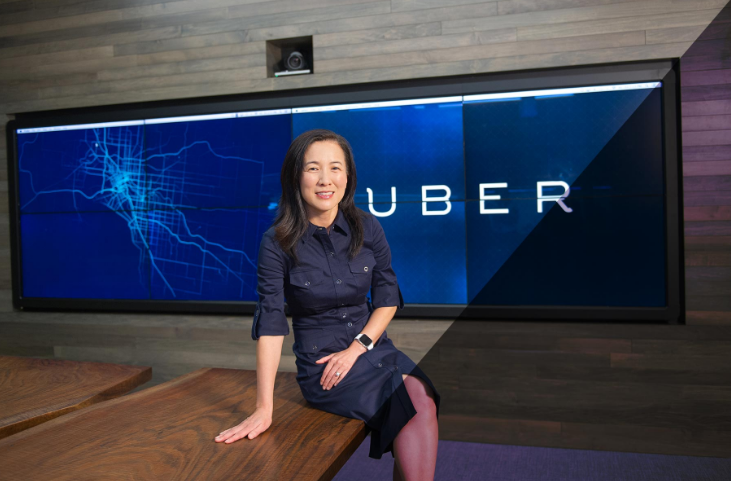# Understanding Uber Law: Navigating the Complexities of Ridesharing Legalities
in today’s gig economy, ridesharing platforms like Uber have transformed how we travel. Though,this change has also introduced a myriad of legal challenges that require specialized knowledge and expertise. This article aims to provide an in-depth understanding of Uber law, the role of Uber lawyers, and the various legal intricacies involved in ridesharing services.## The Basics of Uber Law
### What Constitutes Uber Law?
Uber law encompasses a wide range of legal issues related to ridesharing services. Understanding its foundational principles is crucial for drivers, passengers, and even regulatory bodies. here are some key components:
#### 1. **legal Framework for Ridesharing Services**
– **Jurisdictional Variability**: The laws governing ridesharing vary substantially across different jurisdictions—local, state, and national regulations dictate licensing requirements and safety standards.
– **Driver Classification**: A contentious issue within Uber law is weather drivers should be classified as independent contractors or employees—a classification that affects labor rights and benefits.
#### 2. **Regulatory Challenges**
– Regulatory bodies often grapple with ensuring safety standards while balancing the interests of customary taxi services against those offered by rideshare companies like Uber.
#### 3. **Employment Classification Issues**
– The ongoing debate about driver classification has led to numerous lawsuits challenging how drivers are categorized under labor laws.
#### 4. **Arbitration Agreements**
– As part of their terms of service, both riders and drivers must agree to mandatory arbitration clauses which can complicate dispute resolution processes.
#### 5. **insurance Requirements**
– Insurance plays a critical role in protecting both drivers and passengers during incidents or accidents while using the service.
### Data Privacy concerns
Uber’s collection and handling of user data raise meaningful questions regarding consent and compliance with data protection laws—issues that have attracted regulatory scrutiny globally.
## Responsibilities Held by an Uber Lawyer
Uber lawyers specialize in navigating this complex landscape on behalf of both individual drivers as well as the company itself. Their responsibilities include:
### Legal Consultation
Providing complete legal advice on regulatory compliance issues affecting both parties involved—drivers seeking clarity on their rights or obligations under current laws.
### Employment Disputes
Addressing disputes related to employment status is one major duty; they help determine if a driver should be classified as an employee or independent contractor based on various factors such as control over work conditions.### Representation in Legal Proceedings
Uber lawyers represent clients during arbitrations or court cases involving disputes ranging from accidents to employment-related litigation.
### Handling Accidents & Insurance Claims
They manage claims arising from accidents involving ride-sharing vehicles—including negotiating settlements with insurance companies for personal injury cases resulting from these incidents.
## Navigating Legal Procedures in Uber Cases
Understanding how legal proceedings unfold within this context is essential for all stakeholders involved:
### Initiation Process
Legal actions may begin when either party files a lawsuit or arbitration claim against another party due to grievances such as deactivation disputes or personal injury claims stemming from accidents involving an Uber vehicle.
### Discovery Phase
During discovery—the process where evidence is gathered—both sides exchange relevant data which helps build each party’s case before proceeding further into litigation if necessary.
## building Effective Defenses for Drivers
When faced with challenges such as deactivation due to low ratings or customer complaints about behavior during trips; building robust defenses becomes paramount:
1) Understand Grounds For Deactivation:
– Familiarize yourself with specific reasons cited by management when terminating contracts so you can effectively challenge them if unjustified.
2) Review Terms Of Service:
– Analyze agreements signed upon joining platform carefully since they outline expectations set forth by company policies regarding performance metrics etc., which coudl serve useful later down line when contesting decisions made against you!
3) Challenge Unjust Deactivations:
– If termination appears unwarranted based upon incorrect information provided (e.g., false allegations), present evidence refuting claims made against you while demonstrating adherence towards established guidelines throughout tenure working there!
4) Navigate Arbitration Agreements:
– Since many contracts include mandatory arbitration clauses requiring resolution through private channels rather than public courts; ensure representation understands nuances associated therein before proceeding forward!
5) address Employment Classification Issues:
– If your status comes into question (i.e., whether considered employee vs contractor), seek counsel who specializes specifically within area focusing closely upon factors influencing determination process itself!
6) Accident Defense & Insurance Claims Management:
In case involved accident occurs whilst driving passenger(s); assess liability thoroughly alongside addressing any potential negligence allegations raised thereafter!
7) Respond To Labor Disputes Effectively!
Should wage-related concerns arise amongst fellow colleagues working similar roles; engage attorney experienced navigating these types situations advocating fair treatment throughout negotiations held between parties concerned!
8 ) Regulatory Compliance Defense Strategies!
Ensure adherence local/state regulations governing operations conducted regularly avoiding unnecessary penalties imposed otherwise!
9 ) Customer Complaint responses!
When faced negative feedback left behind after trip completion analyze nature complaint thoroughly presenting counter-evidence supporting position taken defending actions performed accordingly!
10 ) Expert Witness Engagements!
Consider bringing experts onboard providing testimony supporting defense strategy employed enhancing credibility overall argument presented court/arbitration hearings alike!
## Conclusion: The Importance Of Expertise In Navigating Complexities Within Rideshare Industry
As we conclude our exploration into the multifaceted realm surrounding “Uber Law,” it becomes evident just how dynamic yet intricate landscape truly remains today! From understanding basic principles underlying legislation governing operations carried out daily right through responsibilities assumed by attorneys specializing field—it’s clear why having informed representation matters greatly when facing potential challenges arising unexpectedly along way too often overlooked until too late regrettably happens sometimes leading dire consequences ultimately impacting livelihoods directly affected individuals relying heavily upon these platforms earn income sustainably long-term basis moving forward together collaboratively overcoming obstacles encountered collectively striving achieve success mutually beneficial outcomes achieved consistently over time period ahead still lies ahead waiting patiently discover what future holds next chapter unfolds journey continues onward evermore exciting possibilities await us all indeed!!
